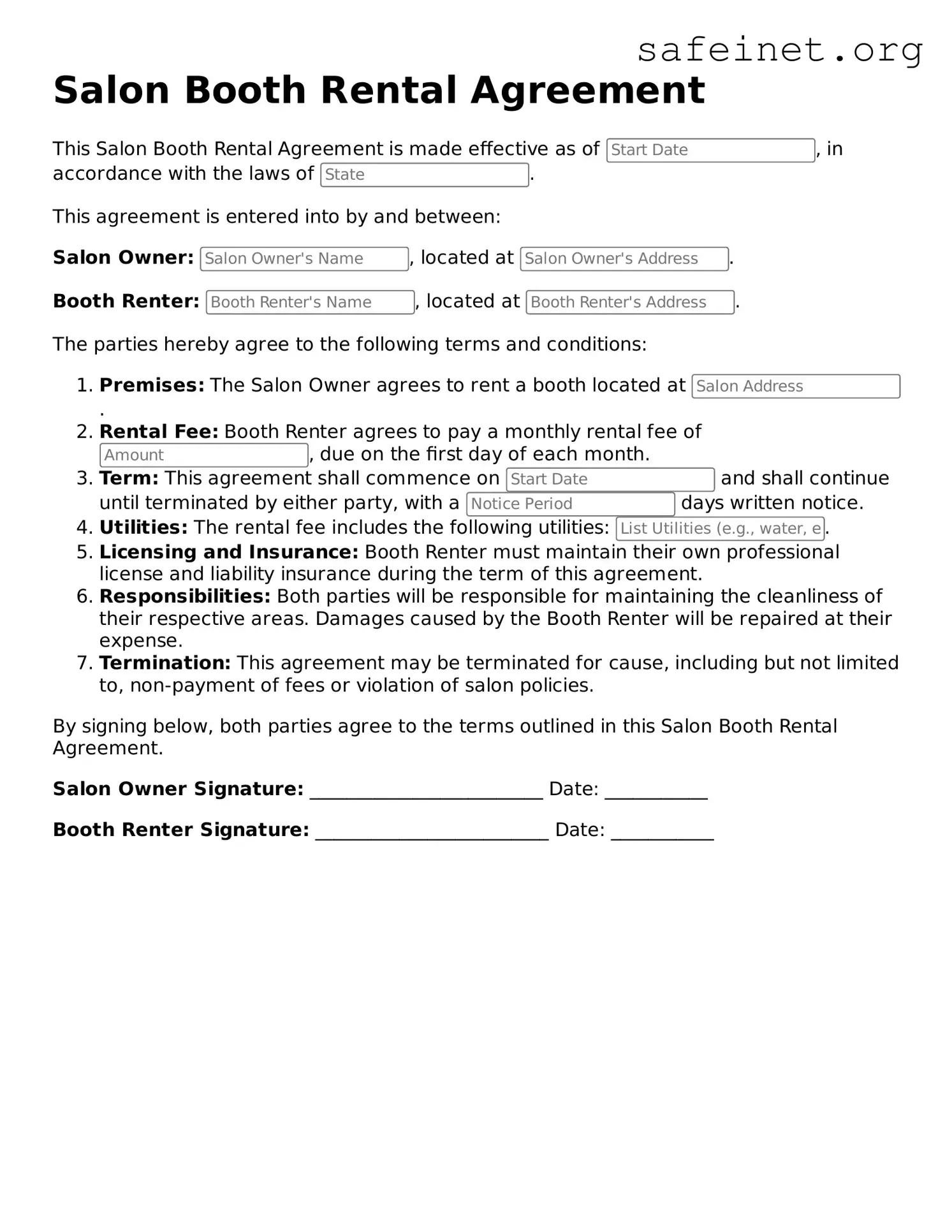What is a Salon Booth Rental Agreement?
A Salon Booth Rental Agreement is a contract between a salon owner and a stylist or beauty professional who rents a booth or space in the salon. This agreement outlines the terms and conditions of the rental, including the duration of the lease, rental fees, expectations regarding services, and responsibilities for utilities and other expenses. It ensures clarity and can help prevent disputes between the salon owner and the renter.
What are the typical terms included in the agreement?
In a typical Salon Booth Rental Agreement, you'll find provisions that cover key aspects such as rental rates and payment schedules, the length of the lease (whether it's monthly, quarterly, or annual), and the responsibilities of both parties regarding maintenance and upkeep. Additionally, it may include clauses on insurance requirements, the sharing of utilities, and conditions for terminating the agreement, ensuring that both parties understand their rights and responsibilities.
Do I need a lawyer to draft or review a Salon Booth Rental Agreement?
While it is not mandatory to involve a lawyer when creating or reviewing a Salon Booth Rental Agreement, doing so can be beneficial. An attorney can help ensure that the contract is legally sound, addresses all necessary provisions, and protects your interests, especially if you’re entering into a long-term commitment or if there are specific terms that you feel unsure about. Having professional guidance can bring peace of mind and help avoid potential future disputes.
What happens if the terms of the agreement are violated?
If either party violates the terms of the Salon Booth Rental Agreement, the consequences depend on the specific provisions outlined in the contract. Common outcomes may include the right to terminate the agreement, financial penalties, or legal action. It’s best to communicate openly with the other party to resolve any issues that arise. Maintaining a good relationship often facilitates a smoother resolution.
Can the agreement be modified after it’s signed?
Yes, the Salon Booth Rental Agreement can be modified after it has been signed, but changes should be made in writing and agreed upon by both parties. Many agreements will include a clause that outlines the process for amendments. Clearly documenting any changes helps prevent misunderstandings and ensures that both parties are on the same page moving forward.
